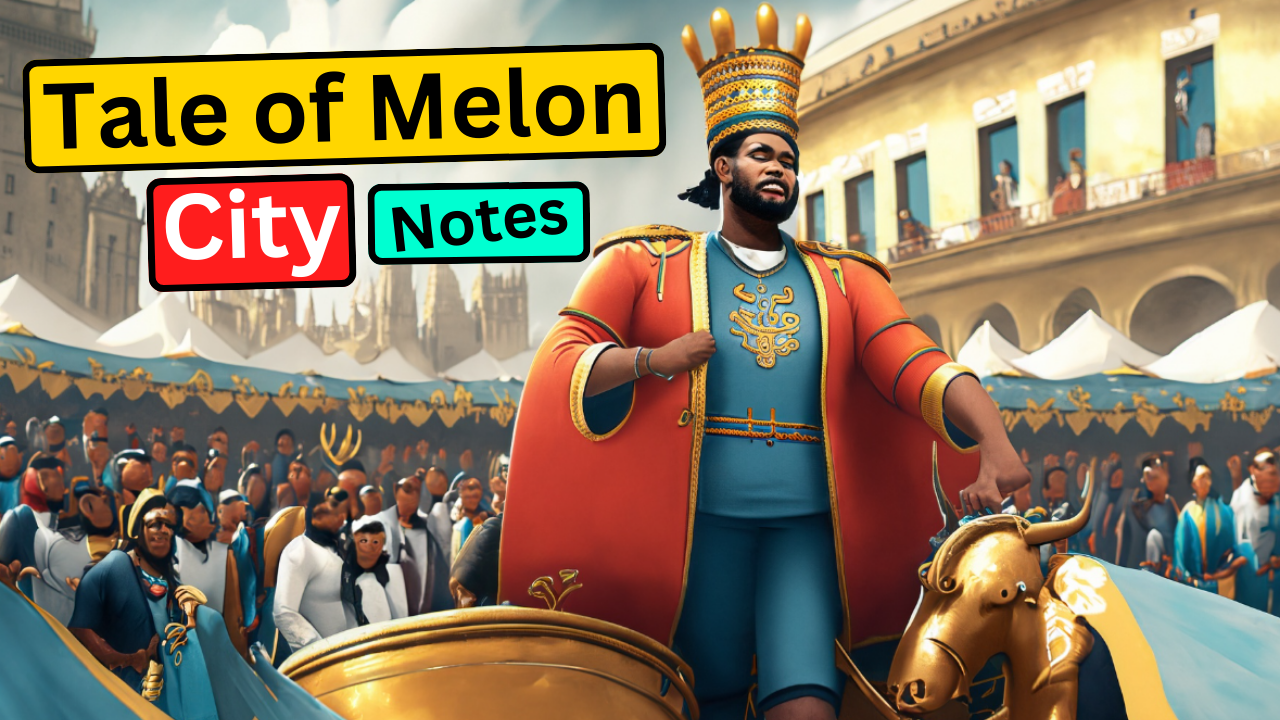The Tale of Melon City Summary Class 11 English

Etutor Guru
22 Aug 2023
Summary of the Tale of Melon City
The Tale of Melon City is a poem by Vikram Seth that mocks any government system. These are too simple tails of age-old customs or being proud of beliefs and traditions. Furthermore, the poet represents any nation whose policies are based on superstitions and old age beliefs through the melon city. However, the poem’s king is a peace-loving figure, but we soon discover how hollow/ironic that claim is. Furthermore, the king wishes to restore peace by eliminating anyone who has made a minor error. And we can easily obtain this from his order to execute innocent people. By observing how criminals evade the law and how citizens benefit from the country’s policies.
The Tale of Melon City Summary in English
Vikram Seth’s poem is a satire on people in positions of power. He has amusingly presented the idea that it makes no difference to people who the king, ruler, or head of state is as long as he is alive.
Long ago, there was a city known as Melon City. Where a just and peace-loving king reigns. The king announces the construction of an arch across the street for public illumination. The king passed beneath the arch after it was finished, and his crown fell. Furthermore, he became enraged and desired to punish the chief builder by hanging them.
So the gallows are set up, and the soldiers bring in the builder for hanging. Builder knelt on his keens and begged mercy. He also claimed that it was the fault of the workers. As a result, the kin pardons the builder and orders the execution of the workers. The minute workmen begged the king not to hang them, claiming that it was the fault of the mason for supplying the wrong size brick.
The architect, according to the mason, was to blame. As a result, everyone shifts the blame to someone else. However, the architect claimed that the king was the one who changed the plan.
The decision of who should be hanged had become difficult, and the king was perplexed. As a result, he is known as the wisest man in the kingdom. As a result, a man on his deathbed was brought to the king. The wise man advised the king to hang the arch because it was the perpetrator. As a result, a massive gallows was erected to hang the arch.
However, the councillor stated that we could not hang the arch because it had become pure after touching the king’s head.
The crowd had grown restless and impatient for hanging by this point. Fearing rebellion, the king ordered the immediate hanging of anyone to appease the crowd. As a result, everyone present tries to fit the high-set noose. But only the king was a perfect fit. And the executioner did as he was told.
Furthermore, the city had an odd custom of electing a new king. It was customary for anyone who passed through the streets the next day to vote for the king. As a result, when the guard asked a passer-by who must be the king the next morning, he replied, “Melon.” Because the pedestrian was a moron who answered every question with the word “melon.”
As a result, they crown the melon as king. Since then, the city has been referred to as “Melon City.” Locals tell this story to anyone who inquires about the origins of the city’s name.
Conclusion of the Tale of Melon City Summary
The poet’s message in this poem is whether or not the monarchy’s rule is effective.

